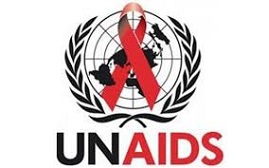A new report released today by UNAIDS and Friends of the Global Fight Against AIDS, Tuberculosis and Malaria shows how countries are leveraging their HIV responses to both ensure impact on the HIV response and also to improve broader national health and well-being.
The report finds that investing now to end AIDS as a public health threat by 2030 will not only follow through on the commitment to end the pandemic but also magnify the broader health benefits of HIV specific investments.
The report, Expanding the HIV response to drive broad-based health gains, profiles country examples from Colombia, Côte d’Ivoire, Jamaica, South Africa, Thailand and Uganda. Experiences in these six countries indicate that strengthened HIV responses have contributed to broader health benefits. Far from being in isolation, HIV treatment, prevention and care programs are also helping to build more robust health systems that enhance access to people-centred care and bolster pandemic preparedness.
For example, the integration of HIV and non-HIV specific services is increasing access to holistic, comprehensive health services needed for people living with and affected by HIV. In Côte d’Ivoire, Jamaica, South Africa and other countries, service platforms originally developed to respond to HIV are leveraged to provide a broad range of health services, including prevention, screening and treatment of noncommunicable diseases.
HIV care is inspiring models of care in other areas. In Colombia, a model of care specifically developed for HIV is now being used for the provision of comprehensive, coordinated care for other chronic diseases, including diabetes, cancer and cardiovascular diseases.
Health system components strengthened through HIV investments are also improving a wide array of health outcomes in addition to those related to HIV and AIDS. In Côte d’Ivoire, laboratory systems strengthened through HIV investments are contributing to diagnostic services for multiple health issues, including maternal and child health, tuberculosis, viral hepatitis and COVID-19.
As progress lags in achieving many of the health targets of the Sustainable Development Goals, efforts to end AIDS stand out as a beacon of hope. Since 2010, annual new HIV infections and AIDS-related deaths have declined globally by 38% and 51%, respectively.
Angeli Achrekar, Deputy Executive Director of Programmes at UNAIDS, said “This report highlights the need for more purposeful efforts by countries to identify and capitalize on ‘win-win’ opportunities that efficiently and effectively increase the reach of health services to accelerate progress towards ending AIDS as a public health threat by 2030 and to reach other health-related Sustainable Development Goals.”
The report concludes with a series of recommendations to further leverage the wider health benefits through increased and sustained HIV investments. It says that particular attention is required to maintain and further strengthen investments in robust, sustainable community networks of people living with HIV and key populations, including networks led by women and young people.
Chris Collins, President and CEO of Friends of the Global Fight, said: “The HIV response is a force for multistakeholder engagement, human rights-based programming, community leadership and constant innovation. These are strengths we need to bring to health services more broadly, including pandemic preparedness and Universal Health Coverage. But this catalytic role for the HIV response is only possible if governments, donors and communities invest adequately and commit to accelerated progress against HIV.”

